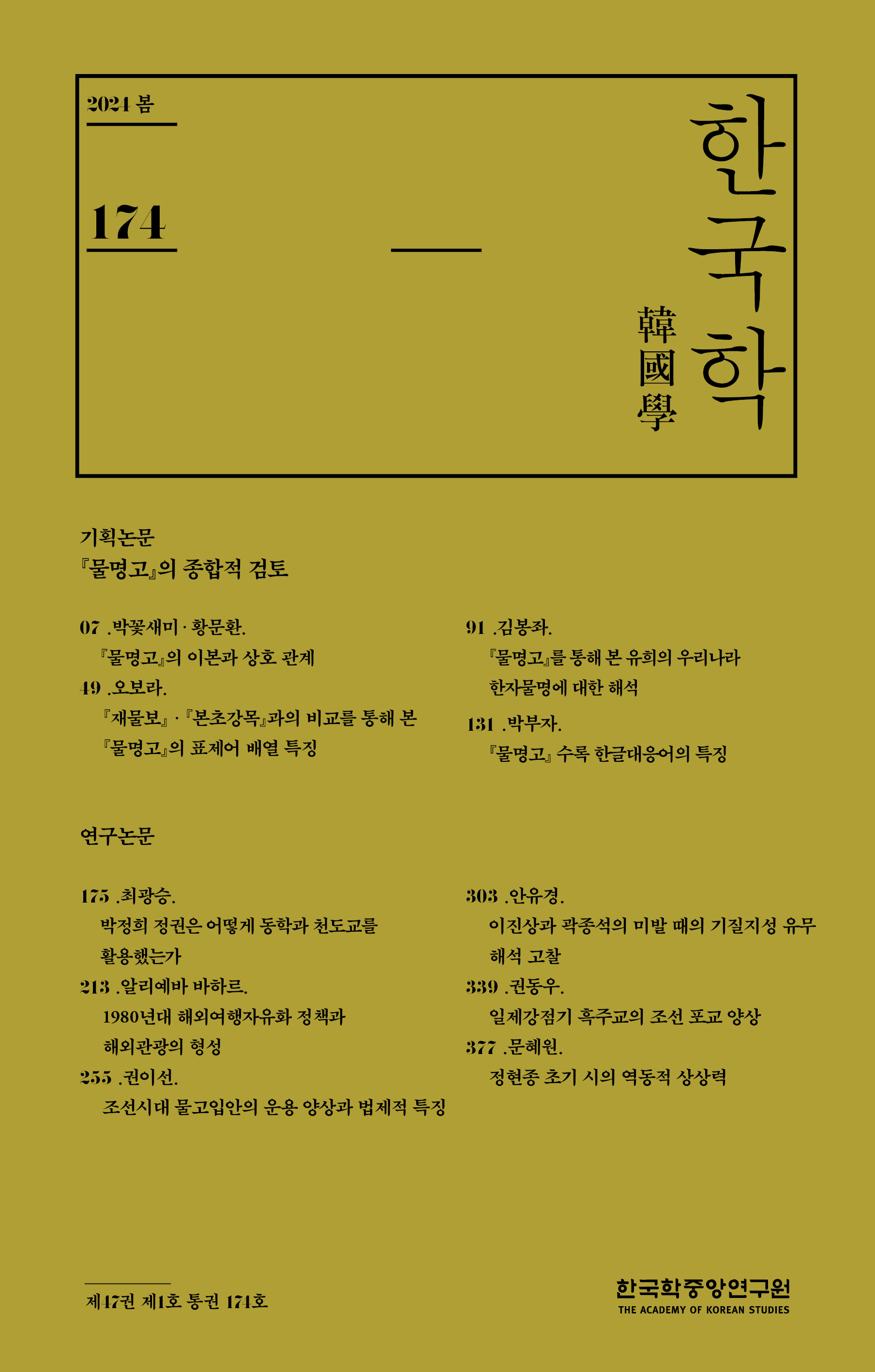
- P-ISSN 2671-8197
- E-ISSN 2733-936X
.jpg)
This paper attempts to identify with the postcoloniality of silent cinema, Arirang(Na Un Kyu, 1926). For analysing the textuality and the reception history of that film, this paper methodly designs postnational historiography through ‘time lag’(Homi Bhabha) and ‘provincializing Europe’(Dipesh Chakrabarty), which are the historical reality and interpretative strategy of colonial modernity in Korea, and also give access to subaltern histories beyond historicism. So this paper discuss that film's textuality as melodrama which is a cultural response and expression to colonial modernity, and the reception of that film as ‘recalcitrant resistance with difference’ which the Japan Empire could not censor. The latter's why? In Arirang, Byunsa's the performative oral excess and spectatorship as ‘rumor’ couldn't be controlled by the government official of empire. Consequently, this paper suggests the alternative public sphere which is based on the ‘untraditional tradition.’
(≪每日新報≫1926년10월10일자) 新映畵 ‘아리랑’을 보고,
(2005) 일제하 서울에서의 식민권력의 지배전략과 도시공간의 정치학,
(≪매일신보≫1925년1월3일자) 김영환 映畵解說에 對한 나의 意見,
(≪三千里≫1936년11월호) 名監督이 모여 ‘朝鮮 映畵’를 말함,
(2002a) 實錄 韓國映畵叢書(上), 서울: 국학자료원
(2002b) 春史 羅雲奎 映畵 全作集, 서울: 국학자료원
(2004) 구술문화와 저항담론으로서의 소문: 이기영의 고향론,
(1999) 서울에 땐스홀을 허하라, 서울: 현실문화연구
(2002) 서발턴에게 역사는 있는가? ,
(2002) 맑스주의 이후의 맑스: 역사, 서발터니티, 차이,
(2004) 원시적 열정: 시각, 섹슈얼리티, 민족지, 현대중국영화, 서울: 이산
(1994) 기계 복제 시대의 예술작품 문예비평과 이론, 문예출판사
(2004) 무성영화 <아리랑>과 검열 : 검열이 <아리랑>에 미친 영향과 원형 재구 가능성을 중심으로,
남기고 싶은 이야기들 연도 및 출처 미상,
(1995) 구술문화와 문자문화, 서울: 문예출판사
(2000) 식민지 인식의 ‘회색 지대’: 일제하 ‘공공성’과 규율권력,
(≪신동아≫1964년12월호) 무성영화시대의 자전,
(2001.10) 이영일이 만난 한국영화의 선각자들 구술기록: 선전물 트집 잡혀 경찰에 연행되는 고초, 그러나 영화는 대흥행,
(2004) 한국영화전사, 서울: 소도
(2005) 나운규의 <아리랑>(1926)의 재구성: <아리랑>의 활극적 효과 혹은 효과의 생산,
(1992) 이론과 실천,
(1995) 19세기 말 진보적 지식인의 인종주의적 특성: ≪독립신문≫과 윤치호의 일기를 중심으로,
(2005) 일제하 검열기구와 검열관의 변동 ,
(2005) 언론조선총독부, 서울: 커뮤니케이션북스
(2003) 해설: 라운규와 수난기 영화와 남북한의 나운규 연구, 서울: 일월서각
(2002) 게임의 서사구조, 365
(2005) 문화정치기 검열체제와 식민지 미디어 ,
(2002) 문화의 위치, 서울: 소명
(2000) Dipesh, Provincializing Europe: Postcolonial Thought and Historical Difference, Princeton and Oxford: Princeton University Press
(2006) Benshi as Stars: The Irony of the Popularity and Respectability of Voice Performers in Japanese Cinema,
(1994) Defining Cinema in Taisho Japan, Aaron
(1987) studies in melodrama and the woman's film,
(2000) Christine Gledhill&Linda Williams(ed.) Reinventing Film Studies, New York: Arnold
(2000) The mass production of the senses: classical cinema as vernacular modernism, New York: Arnold
(1986) Third-World Literature in the Era of Multinational Capitalism,
(2001) Modernity and Melodrama: Early Sensational Cinema and Its Contexts, New York: Columbia University Press
(1998) Melodrama Revised, California: University of California Press